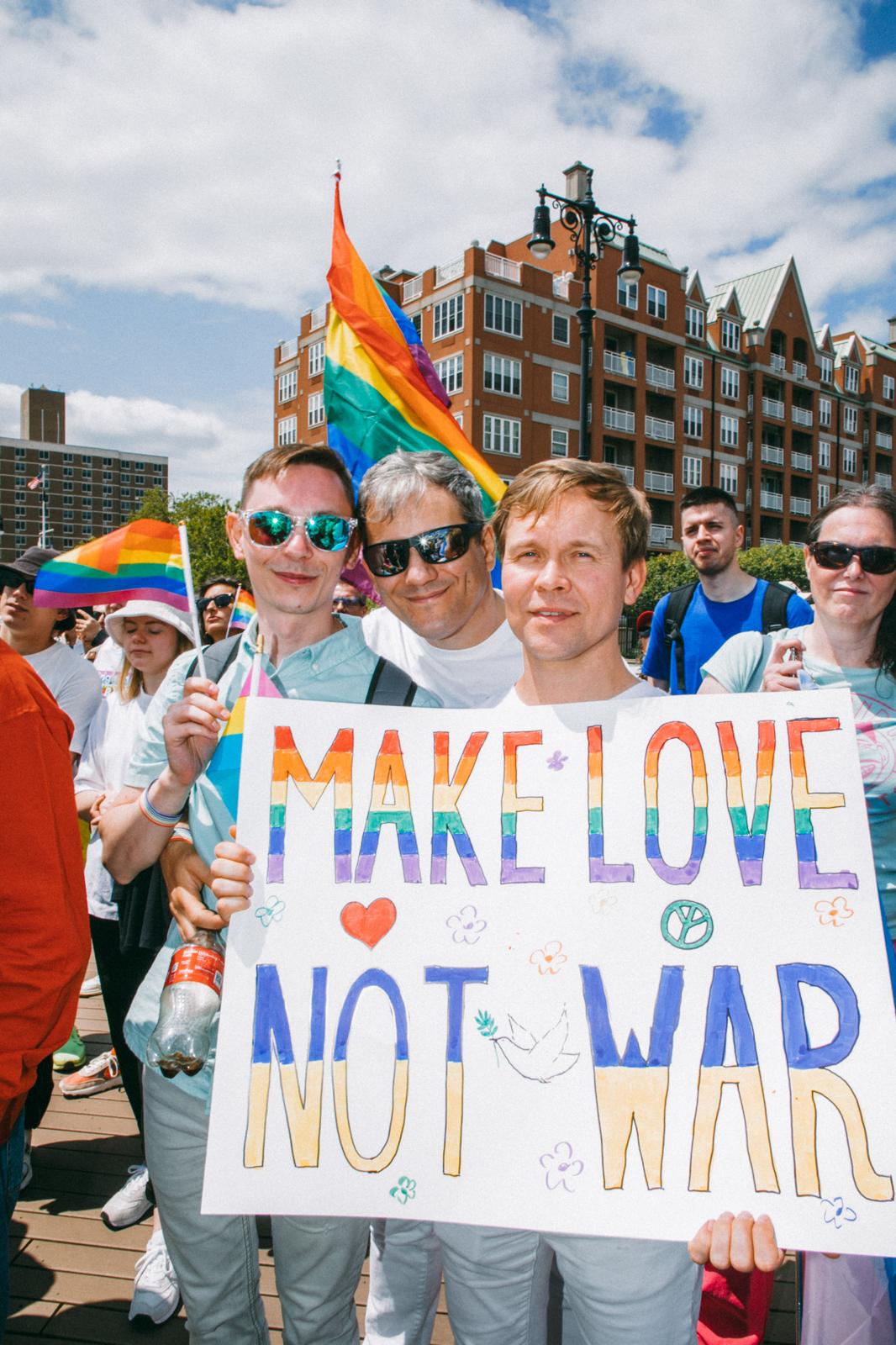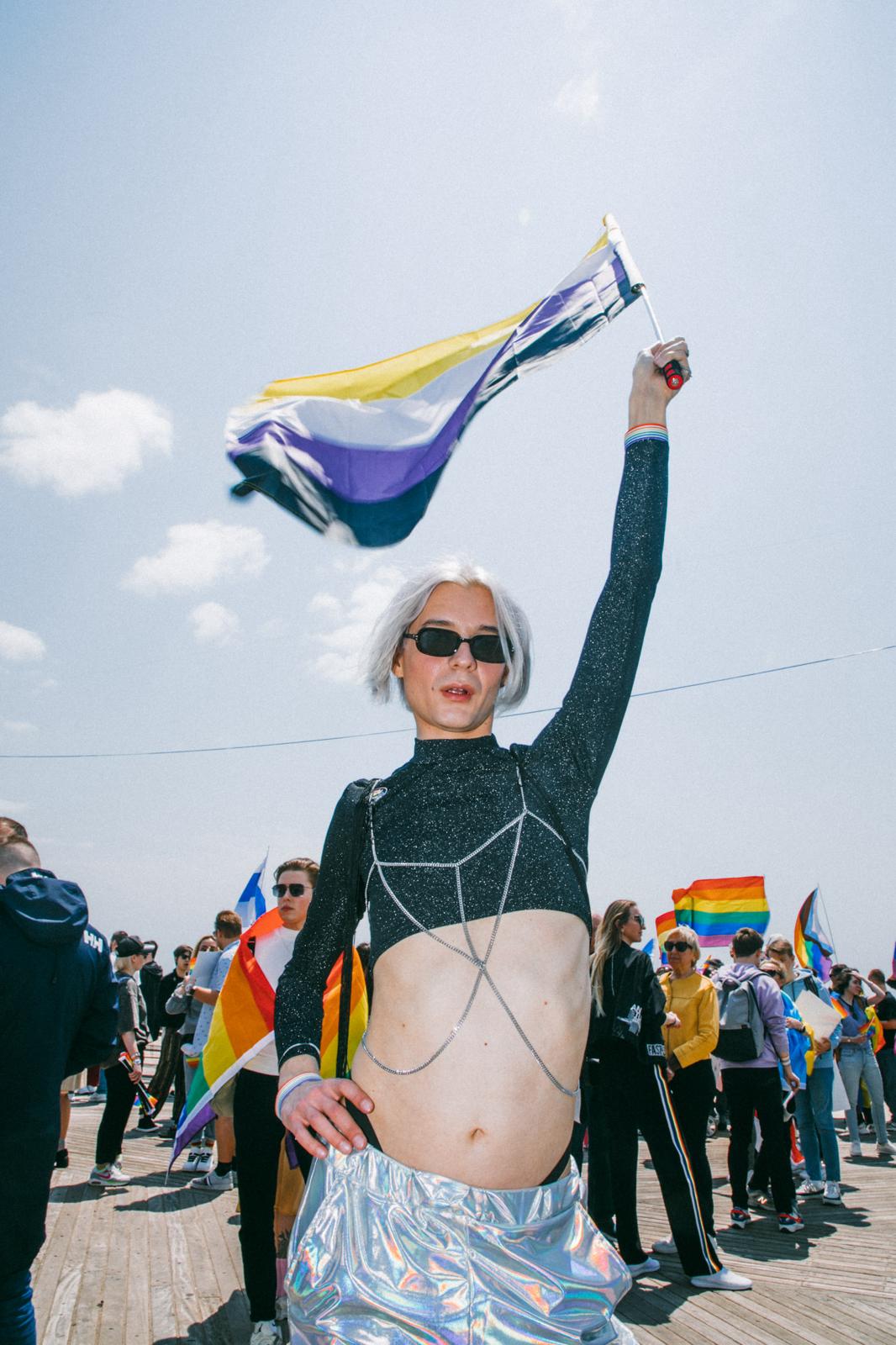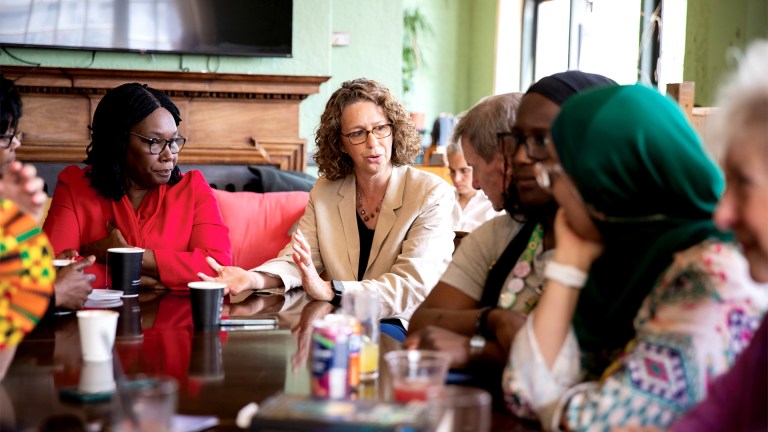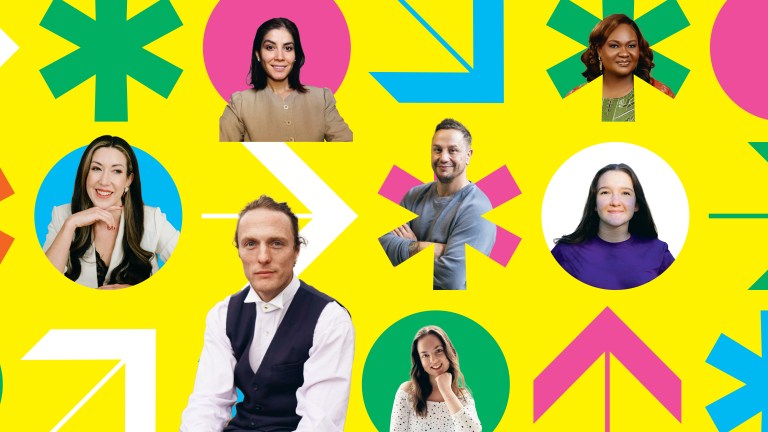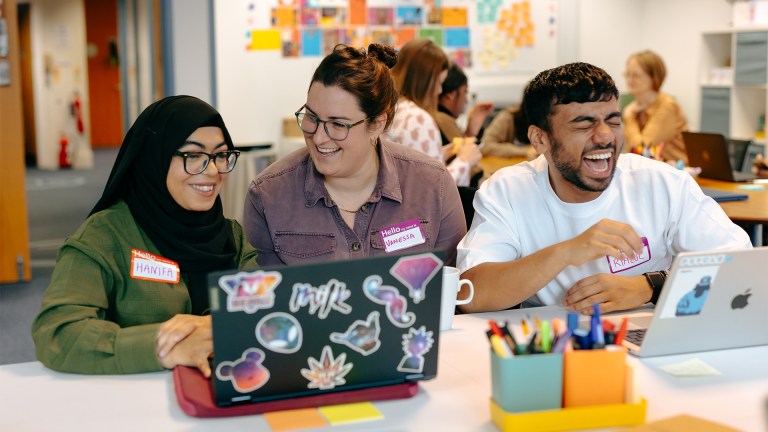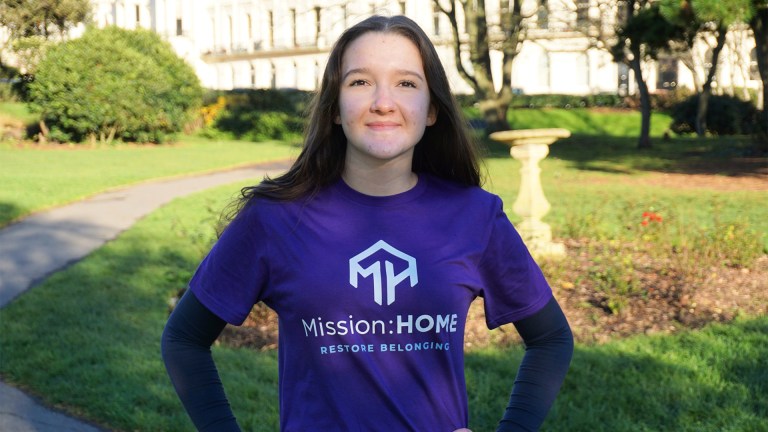They’re currently busy organising this year’s event, which will take place on Sunday (19 May) by the seafront. “We march through the diaspora of Brighton Beach because it’s important to be present and visible in the Russian speaking neighbourhood” they said. “It’s a visual representation that we are here and we exist, and we’re not people from somewhere else.
“We are people from the community, we speak the same language. We come from the same cities or countries. We eat the same food, we listen to the same music, we read the same books.”
Born in the US, Ibadov spent their childhood in Moscow, then moved back to New York at 16 after Vladimir Putin’s re-election, having “seen the writing on the wall”. A lot of their family originally came from Odessa.
“Moving to South Brooklyn as a queer person made me feel like I didn’t live in New York”, they said. “I didn’t have access to other queer people. For a long time, I ended up running away from the Russian speaking community because I just felt that I couldn’t be Russian and queer at the same time, because they’re just in contradiction with each other.”
They weren’t entirely wrong. Back in 2012, when they moved halfway across the world, Moscow courts introduced a 100 year ban on Pride marches in the city. Five years later, when the first Brighton Beach Pride march took place in Brooklyn, revellers were heckled by members of the community.
“We had people yell slurs at us, and telling us to go back to where we came from. I was like, ‘But we all came from the same place?’”, Ibadov said with a bitter laugh. Despite taking place in one of the most liberal cities in the world, the Little Odessa march remained stuck in a community so reactionary and tight-knit it felt suffocating.
Advertising helps fund Big Issue’s mission to end poverty
None of the local politicians wanted anything to do with them, and few of the local businesses wanted them as customers. Then Russia invaded Ukraine in 2022. Though the outbreak of war led to some tensions developing in the neighbourhood at large, it represented a turning point for the local LGBTQ+ community, all of whom were united against Putin’s actions.
As Ibadov explained, “something shifted after Russia’s full scale invasion of Ukraine. In 2022 and 2023 the theme was ‘solidarity with Ukraine’, so when we were marching, carrying Ukrainian flags and Pride flags, I think the local community saw that as a sign that hey, we actually have more in common than you think, we have similar values.”
Still, there was the occasional hiccup. One of last year’s chants was a traditional Ukrainian call and response which goes “glory to Ukraine! glory to the heroes! glory to the nation! death to the enemy!”. Some Russian attendees felt that, despite being against the war, they couldn’t quite comfortably sing along.
This is why they are going for a “more unifying message” this year, and will march under the banner of “our love is not extremism”, which takes aim at anti-LGBTQ+ legislation recently passed in Russia.
Another hearty development is that the event will be addressed by Justin Brannan, a local New York City council member and the first politician to speak on the day. Ibadov also spoke excitedly about the afterparty – their biggest ever – which will be hosted by one of Little Odessa’s roof terrace bars.
“It was always hard to find businesses or restaurants in the community that would welcome us and support us, so it’s a good indicator that things are changing in Brighton Beach, and the Pride marches are having a real, tangible impact”, they said.
Advertising helps fund Big Issue’s mission to end poverty
It is obviously good news for those planning to march on the day, but the non-profit’s plans extend far beyond Pride parades. “Community building is our main focus because we understand that queer people coming from our part of the world don’t really understand or have never really experienced the queer community in the way that we in the western democracies have”, Ibadov said.
“They’ve had to leave their families behind and then come to a different country and start their own chosen family. We try to be that queer chosen family for all these folks.”
Long may they continue.
